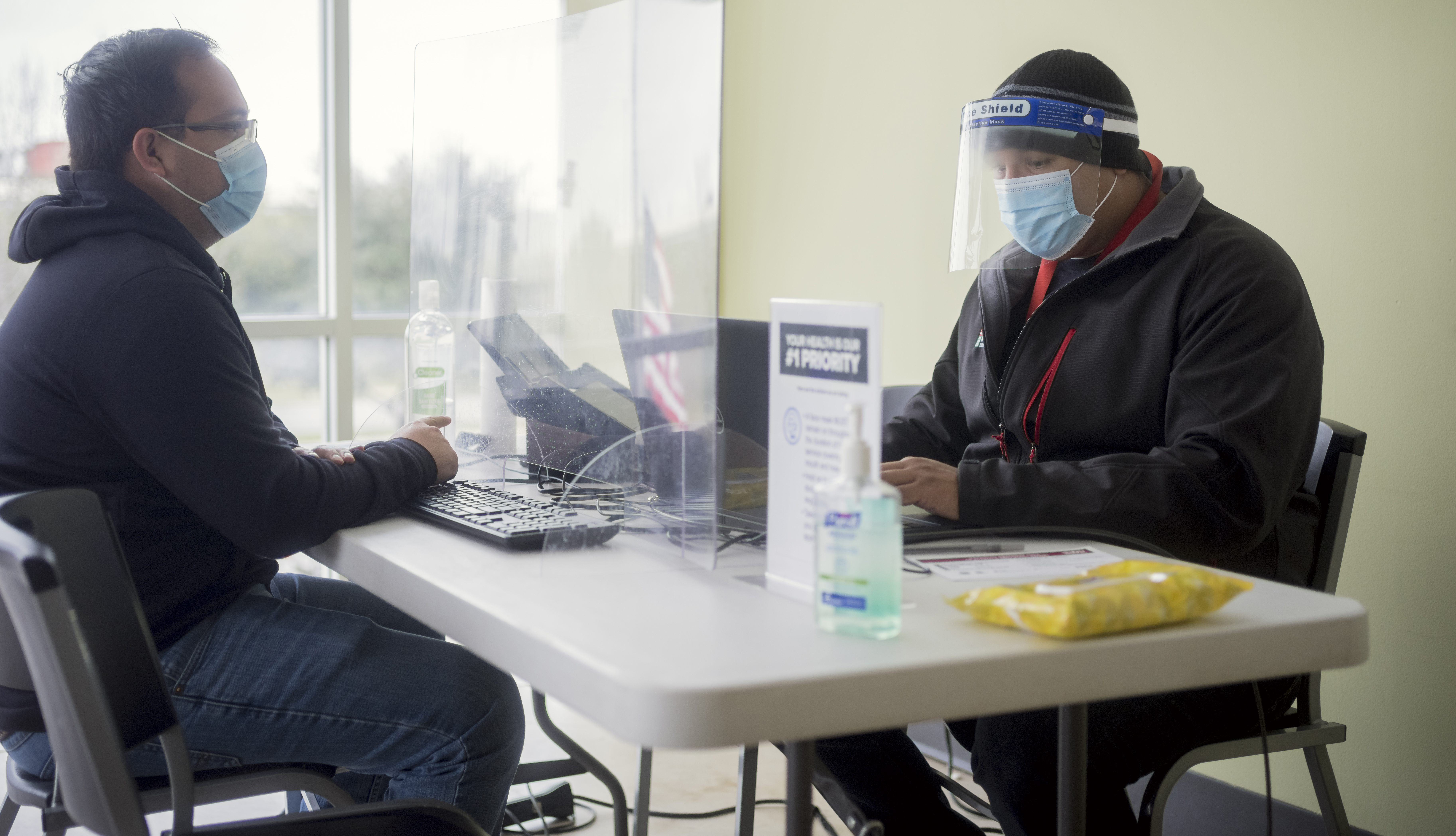AARP Hearing Center

Eric Cooper, CEO of the San Antonio Food Bank, has seen demand for food assistance explode since the COVID-19 pandemic took hold last spring.
Beyond serving twice the number of people—120,000 each week in 2020, compared with 60,000 a year earlier—the food bank has clients leaning more than ever on one of its lesser- known services.
The organization helps people apply for the federal Supplemental Nutrition Assistance Program (SNAP), which helps Americans in need to buy food. It’s a particularly daunting process in Texas, which requires an 18-page application that, in Cooper’s view, is about as easy to navigate as a long-form tax return.
The program requires an accounting of household income, assets and expenses, and people must apply every six months. It currently provides a maximum monthly benefit of $234 for one person or $430 for a couple.
“If they do it on their own, they often come away not qualifying for the benefit,” Cooper said. “Or they qualify for a benefit that is so small they say, ‘I might as well not apply if I’m going to get only $35 a month and on top of that I have to go back in six months and apply again.’ ”
During the 2021 legislative session, AARP Texas is urging state lawmakers to streamline the application process for older adults and people with disabilities.
Proposed legislation would simplify the SNAP application, waive requirements for in-person interviews and allow three years of eligibility following an initial certification. The exemptions would apply to Texans 60 and older as well as those with disabilities.
“SNAP is the most effective program we have of keeping people out of hunger,” said Kathy Green, AARP Texas outreach and advocacy manager.
“People go to the grocery store and buy the foods they want, items that might be culturally appropriate or right for special diets, which is particularly important for older adults,” she said.
As of December, there were more than 400,000 Texans age 60-plus on SNAP, according to state data.
Bipartisan support
State Sen. Charles Perry (R-Lubbock), who is sponsoring the Senate bill, said only 50 percent of potentially eligible older Texans are enrolled in SNAP “and it has most likely gotten worse because of the current pandemic.”
The legislation would require the state to reach out to older adults on Medicaid, the government health insurance program for low-income Americans, and help enroll them in SNAP, which has similar income requirements.
In 2019, Perry sponsored a similar bill, but it did not receive a House floor vote.
“The bill had broad support from Republicans and Democrats; we just ran out of time,” said Perry, who believes that the measure will pass this session.
Older adults on fixed incomes need help to feed themselves but often other family members, too, said Seth Villalobo, a San Antonio Food Bank worker who helps people sign up for SNAP.
“One senior I had, in his 60s and retired, was barely able to sustain himself and pay his bills,” Villalobo said. “On top of that, he was given custody of two grandchildren—I think 10 and 13. It is really pretty common.”
Learn more about the issue at aarp.org/tx or call 866-227-7443.
Thomas Korosec is a writer living in Dallas.































































